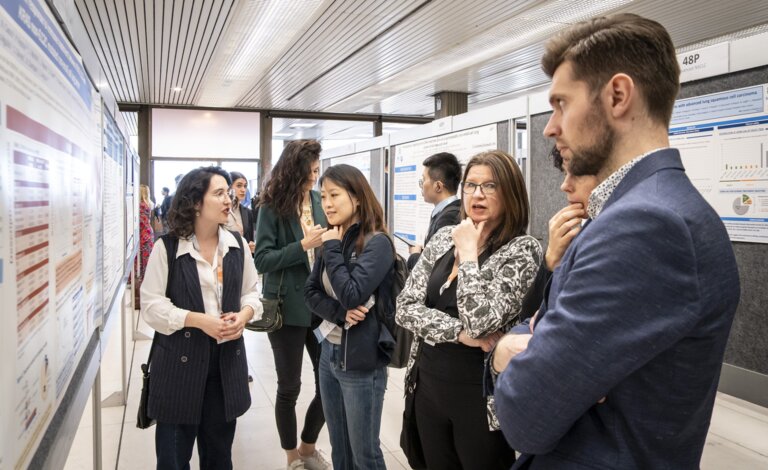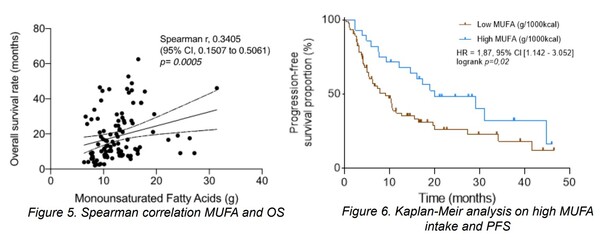Dietary regimens may alter the microbiome composition, increasing bacteria with a beneficial immunogenic effect
At the European Lung Cancer Congress 2024 (Prague, Czech Republic, 20–23 March), data from a poster presentation showed a correlation between a high daily intake of monounsaturated fatty acids (MUFA) and polyunsaturated fatty acids (PUFA) and benefits from treatment in patients with non-small cell lung cancer (NSCLC) amenable to immunotherapy or chemo-immunotherapy (Abstract 73P).
Growing evidence suggests that the microbiome composition, which is influenced by dietary regimen, can modulate host immune responses in cancer and imbalances in the gut flora can affect responses to immune checkpoint inhibitors (ICIs) (Science 2018; 359: 91-97).
In the study, dietary data from 102 patients with NSCLC were prospectively collected in standardised food frequency questionnaires and then analysed to assess the median daily fiber intake (g/day), surrogate markers of the Mediterranean diet, MUFA and PUFA intakes (g/1000kcal). Datasets were finally correlated with progression-free survival (PFS) and overall survival (OS), showing that a high MUFA intake was associated with a prolonged PFS compared to a low intake, with 20.0 vs 9.1 months respectively (HR=1.87, 95% CI [1.142-3.052]; p=0,02) and a longer OS (Figure). Similar results were observed in patients reporting a high intake of PUFA, while no correlation was found with the daily fiber intake, which was generally low in the population investigated.
Also, a microbiome metagenomics analysis showed that the flora composition was characterised by an overrepresentation of some specific bacteria specimens correlated with an increased PUFA and MUFA dietary intake - respectively of Bifidobacterium, and Eubacterium and Alistipes – which are known for their beneficial immunogenic effect. As the authors highlighted, these data further support the implementation of evidence-based dietary recommendations counseling for cancer patients undergoing immunotherapy.
Abstract discussed:
Malo J. et al. Correlation between diet, microbiome composition and clinical outcomes in patients with non-small cell lung cancer. European Lung Cancer Congress 2024, Abstract 73P
Poster Display Session, 22.03.2024, h. 12:00 – 12:45, Congress Hall Foyer









